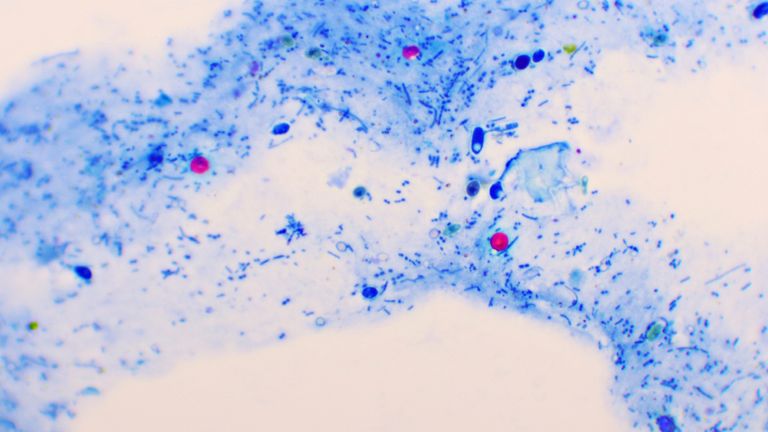Britain has experienced an “unprecedented” increase in people infected with a parasite which causes diarrhoea, abdominal pain and fever, a study has found.
Health officials are unclear what has caused an increase in the prevalence of cryptosporidiosis – a parasite infection of animals, which can be passed to humans.
It is a fairly common disease in humans and in animals such as sheep and cattle.
Symptoms can last up to six weeks and include smelly diarrhoea, fever, nausea, general tiredness and headaches and weight loss.
The parasite is protected by an outer shell that allows it to survive outside the body for long periods of time and makes it very tolerant to chlorine disinfection – meaning outbreaks can start in swimming pools.
However, it may also be found in soil, food, water, or surfaces that have been contaminated with the faeces from infected humans or animals.
The paper, which includes authors from the UK Health Security Agency (UKHSA), Public Health Wales and Public Health Scotland, said it includes findings from an “investigation into an unprecedented and ongoing nationwide increase in cases of cryptosporidiosis”.
Their data, from routine checks of stool samples from people who have reported having the illness, shows around 450 people were confirmed to have the infection on a day towards the end of October this year – around three times the amount expected for this time of year.
The paper published in the Eurosurveillance medical journal says health officials found 2,411 laboratory confirmed cases of cryptosporidiosis between 20 August and 1 October this year – this amounted to 2,032 cases in England, 163 in Wales, 127 in Scotland and 89 in Northern Ireland.
Read more:
Why Britain’s sewage crisis dates back to a fateful decision
Search called off for crew members after British ship sinks
Five Wilko shops to reopen before Christmas
The paper says that “given the scale and geographical spread of the exceedance across regions and nations of the UK, a single local exposure is an unlikely cause”.
Officials also suspect the true number of people infected in the UK is likely to be much higher, with many suffering symptoms without seeking treatment.
Researchers sent surveys to hundreds of people across the UK who reported a symptom onset date of 1 August.
Of the 394 people in England with cryptosporidiosis who provided information on travel, 215 (55%) reported foreign travel in the 14 days preceding their illness, the paper says.
It adds that 96 (45%) of those had travelled to Spain.
The UKHSA says in the study: “Our initial findings would suggest that swimming (either in the UK or abroad), including the use of pools, and foreign travel to a variety of destinations may underlie the current increase.
“However, at this stage other sources, for example contaminated food, cannot be excluded as contributing to the exceedance.”
The paper says although national and international outbreaks of the disease can occur, most are localised and associated with private or public water supplies, swimming pools, animal contact, person-to-person spread or food consumption.
Swimming pool outbreaks often occur when water has been contaminated and the pool is not properly cleaned, while outbreaks often taken place in nurseries.

